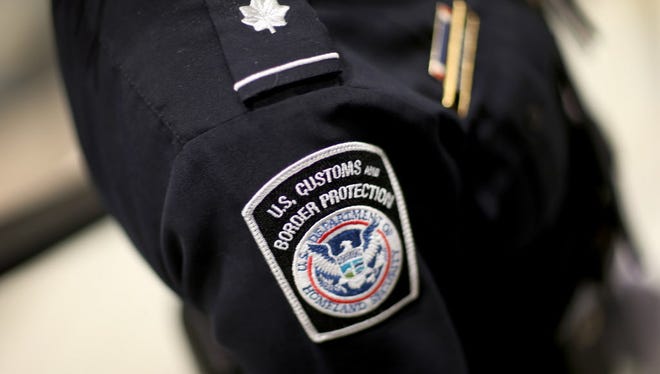Security officials want to expand overseas customs screening
WASHINGTON – As Congress debates blocking Syrian refugees and tightening visa rules, federal security officials are working to expand a popular program that screens travelers overseas customs and immigration.

The Department of Homeland Security is negotiating to expand the Preclearance program to 10 airports in nine countries, all but two of which are in Europe. Lawmakers have voiced concerns that foreign fighters with Western passports who have trained in the Middle East could try to reach the U.S. from Europe.
The Preclearance program begun more than 60 years ago is now in place at 15 airports in Canada, Ireland, the Caribbean and Abu Dhabi. The program screens airline passengers while still overseas for customs and immigration.
The advantage for travelers is to deal with customs lines before rather than after long flights. The goal for federal agencies is to push out U.S. borders so that travelers are screened for security risks before they even get on their flights.
“The collaboration has become even more critical via the evolving security threats, including the emergence of foreign fighters and what’s occurring in Europe,” Kurry Pastilong, assistant director for Preclearance operations, told a panel Friday at the Center for Strategic and International Studies.
Jeh Johnson, the secretary of homeland security, proposed expanding Preclearance more than a year ago and invited airports to voice their interest in joining. From among two dozen proposals, the departments of Homeland Security and State are negotiating security issues and potential reimbursement for staffing at airports in Brussels, Belgium; Punta Cana, Dominican Republic; Tokyo’s Narita; Amsterdam, Netherlands; Oslo, Norway; Madrid, Spain; Stockholm, Sweden; Istanbul, Turkey; and the United Kingdom’s London Heathrow and Manchester.
“The security impact was the largest portion of the criteria highlighted,” Pastilong said.
In response to the Nov. 13 attacks in Paris that killed 130, the House voted to close the door to Syrian refugees who are pouring into Europe, for fear that some could be terrorists. The Senate hasn’t considered the bill yet.
The House also plans to vote next week on legislation to tighten rules for travel from 38 countries, including most of Europe, where visas aren’t required to visit the U.S. European officials have said more time should be spent discussing security changes before the U.S. hinders travel between the continents.
Pastilong said there is great interest among Washington officials to expand the Preclearance program, but that foreign countries must invite Customs and Border Protection to set up shop in their airports — and potentially help pay for the officers.
“I think that there’s a general interest here in Washington, seeing what has occurred in Europe and the mass migration, and seeing how we can better secure the homeland,” Pastilong said. “This may stoke even more interest from countries to partner up with the U.S. even further.”
In fiscal year 2014, Preclearance officers processed 16.4 million travelers, which was 15.3% of the total arriving at all ports, Pastilong said.
Customs officers refused admission to about 10,000 travelers that year under Preclearance, which represented about 12% of the travelers caught through screening against databases of suspected terrorists, he said.
Refusing clearance for travelers to get on flights saves U.S. taxpayers money by avoiding detention here, Pastilong said. Airlines also save costs of flying people back home after being refused entry.
“The results are undisputable,” Pastilong said of 600 Preclearance officers at 15 airports. “It’s a great success.”
Preclearance began in Toronto in 1952, and the city remains the fourth-largest aviation gateway into the U.S. behind New York, Miami and Los Angeles.
Toronto’s airports have 217 daily flights to 50 U.S. cities. The airports sent 5.9 million through Preclearance last year with about 100 CBP officers, according to Howard Eng, CEO of the Greater Toronto Airports Authority.
“It allows both countries to benefit,” Eng said.
One challenge to the program involves the cost. Canadian airports provide space and equipment for Preclearance, with the U.S. paying for the officers.
But at Abu Dhabi, which began Preclearance in January 2014, the United Arab Emirates helps pay for the officers. Cost-sharing is under discussion at the 10 airports where the program could expand next.
If anything, Preclearance is too popular.
Fitti Lourenco, Air Canada’s director of government affairs, would like to see greater CBP staffing to avoid flight delays. Last year, 1,868 Air Canada flights carrying more than 193,000 passengers were delayed for customs-related reasons, he said.
“You can see some rapid increases in delays affecting more and more passengers,” Lourenco said of month-to-month statistics. “To be fair, our volume and our passengers are increasing, so we understand that is adding stress to the system.”